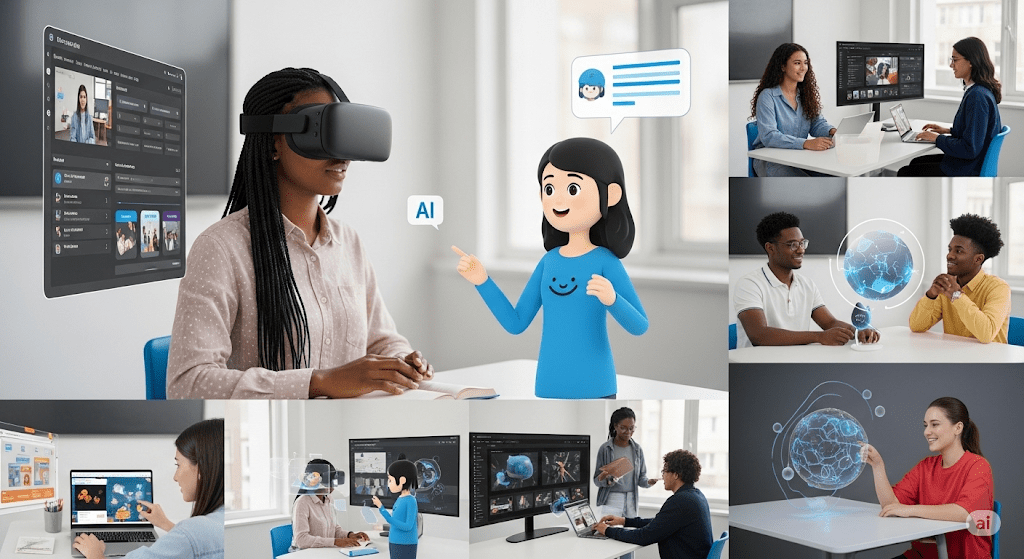The education landscape has undergone a radical transformation. Traditional classrooms are evolving into smart, digital learning environments powered by technology. E-learning in 2025 is more than online classes—it's interactive, personalized, and accessible to anyone, anywhere.
1. The Rise of AI in Education
Artificial Intelligence is driving personalized learning like never before. AI algorithms analyze student performance and adapt content to match their pace and style, improving retention and engagement.
2. The Power of Immersive Tech: AR & VR
Augmented Reality (AR) and Virtual Reality (VR) bring subjects to life. Whether it’s exploring ancient Rome or dissecting a digital frog, learners engage with content in deeply immersive ways.
3. Microlearning and Modular Content
Bite-sized content is dominating EdTech. Short, focused lessons fit into busy schedules and improve focus, especially for working professionals and adult learners.
4. Gamification in Learning
Learning platforms are borrowing ideas from games—points, levels, leaderboards—to make education fun and rewarding. This enhances engagement and encourages continuous learning.
5. Live & On-Demand Learning
Hybrid models of live (synchronous) and self-paced (asynchronous) content let students choose when and how they learn. Live classes foster interaction, while recorded content allows flexible revision.
6. Learning Management Systems (LMS) Are Smarter
Modern LMS platforms are integrated with analytics, communication tools, and AI tutors. They are not just content delivery platforms—they're ecosystems for collaboration, tracking, and personalization.
7. Skills Over Degrees
Employers are valuing demonstrable skills over traditional degrees. E-learning is at the forefront of this shift, with platforms offering certifications in high-demand fields like AI, cloud, and cybersecurity.
8. Global Accessibility & Inclusion
E-learning is breaking geographic and economic barriers. With internet access expanding and mobile-first platforms, even learners in remote areas can access top-tier education.
Conclusion
E-learning is no longer an alternative—it’s a core part of how we learn, work, and grow. As technology continues to evolve, education will become more personalized, interactive, and impactful than ever. Embracing these changes is key to staying relevant in a knowledge-driven world.



 e-learning trends 2025, future of online education, best edtech platforms, immersive learning with AR VR, microlearning platforms, adaptive learning AI, digital classroom tools, edtech innovations 2025
e-learning trends 2025, future of online education, best edtech platforms, immersive learning with AR VR, microlearning platforms, adaptive learning AI, digital classroom tools, edtech innovations 2025
 0 comment
0 comment
 17 Jun, 2025
17 Jun, 2025

Stephen Thompson
0 comment